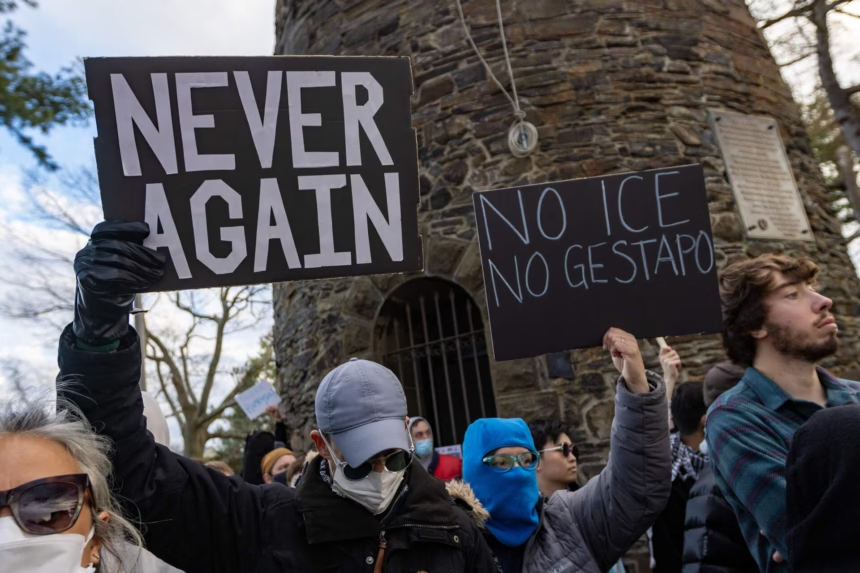Over a thousand demonstrators assembled Wednesday evening at Powder House Square, adjacent to Tufts University’s campus, protesting the detention and potential deportation of graduate student Rumeysa Ozturk, according to WBUR.
Ozturk was taken into custody on Tuesday and is presently detained at a U.S. Immigration and Customs Enforcement (ICE) facility in Louisiana.
Although a federal judge issued an order preventing authorities from transferring her outside Massachusetts without prior notice, it remains uncertain whether her transfer occurred before this directive was issued, WBUR reports.
Her legal representative, Mahsa Khanbabai, maintains that Ozturk, a Turkish citizen, was following all immigration protocols with a valid F-1 student visa for her continued education in the United States. However, a Department of Homeland Security (DHS) representative indicated that federal investigators determined Ozturk had “engaged in activities in support of Hamas, a foreign terrorist organization,” though no supporting evidence was presented for this claim, according to WBUR, an NPR-affiliated media outlet.
The student had co-authored an opinion piece criticizing Tufts’ stance on student demands to cut ties with specific Israel-linked companies. Whether this publication influenced her arrest remains uncertain.
An Arrest That Sparks Outrage
The Tufts protest drew numerous students and activists who condemned what they viewed as unwarranted enforcement. Boston University history student Alastair Holman voiced his frustration: “They are literally kidnapping people from our streets, in our city, and it’s unacceptable.” He continued: “We are creating a society based on fear; this is completely illegal. These people cannot come into our communities and arbitrarily arrest individuals who are here legally, on a visa. This is madness. I don’t even know how to put it into words,” WBUR noted.
Boston public school teacher Amitra Dani suggests that President Trump’s administration’s actions reflect a broader campaign against pro-Palestinian activists: “[Trump] said it during his campaign, and he made it a key part of his policy: attacking immigrants and international students.” She expressed concern about how these actions instill fear among her students.
Muslim Justice League’s executive director Fatema Ahmad contends this arrest follows an expected pattern. She argues such incidents are becoming commonplace nationwide. “I think it is crucial for those who are shocked by this situation to understand that people are disappearing every day—on their way to work, dropping off their children at school…,” Ahmad stated, highlighting her criticism of immigration law provisions that enable the government to initiate deportation proceedings based on unsubstantiated allegations.
The Mahmoud Khalil case demonstrates how a senator like Marco Rubio can effectively terminate someone’s legal status by simply declaring them a threat to national security or foreign policy. These governmental mechanisms, originally established for targeted individual cases, are now being employed with increasing frequency.
The Ozturk situation continues to generate intense debate and heightens existing worries about the protection of rights for international students and activists within the United States.
All quotations and statements presented in this article were gathered by WBUR and published on their website. For a comprehensive understanding of the situation, readers can access WBUR’s complete coverage through the link provided below.
Consider making a donation to CTN? Use the link below. We will greatly appreciate your support.
https://caribbean-television-network.monkeypod.io/give/support-caribbean-television-networ







